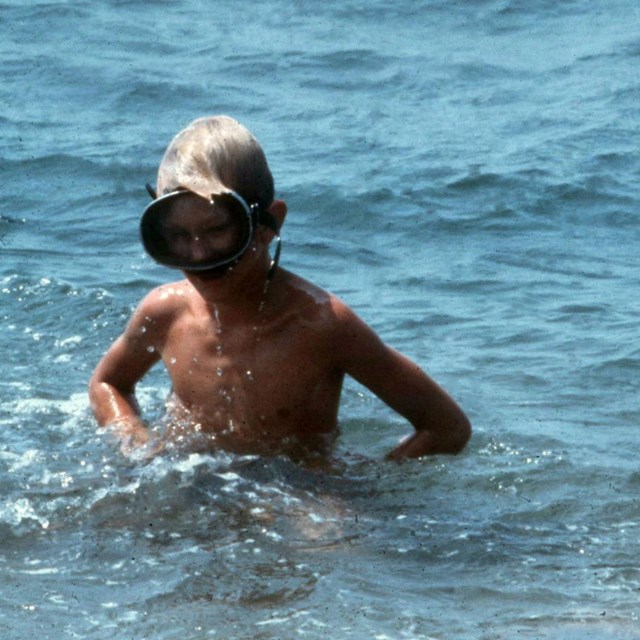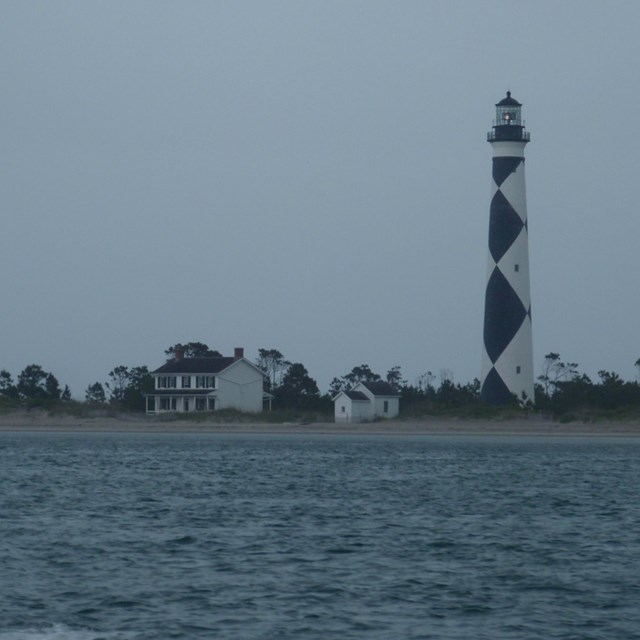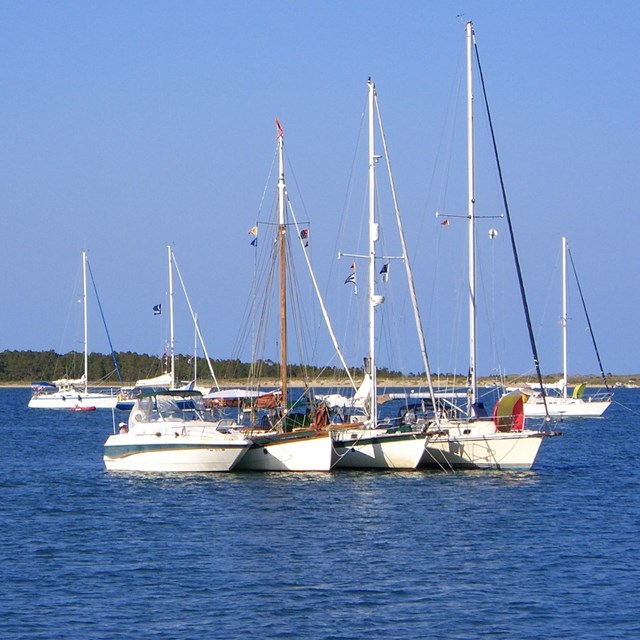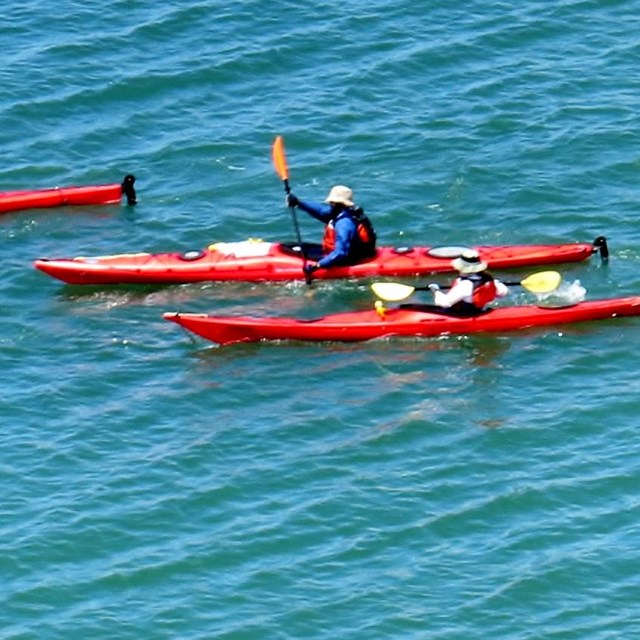|
A little planning can make a big difference in your trip to the national seashore. The following information and tips can help make your visit to Cape Lookout safe and enjoyable. In case of emergency, medical, law enforcement, or other life threatening emergencie), dial 911.During normal working hours in the summer season (generally April to November), the following locations on the islands have park staff or volunteers available to help:
Know Before you GoYour Safety is Your Responsibility
Cape Point is an exposed shoal past the park service boundary markers. This area consists of soft, often wet, and deep sand. 4x4 vehicles will get stuck in this area. If you decide to travel in this region, stay above the high tide line at all times (even while parked). If you get stuck the tide will total your vehicle. Tow truck response times from the mainland vary, but in general the tow truck will arrive the following day.
In addition to the risk of entrapment, the waters south of Cape Lookout can be incredibly dangerous due to shifting and converging currents. Getting caught by a rising tide while traveling on foot through this narrow band of sand could quickly sweep someone off their feet and out to sea. The exposed shoal is outside of Cape Lookout National Seashore's jurisdiction. Reccomended equitment:
Mosquitoes, green head flies, sand gnats, chiggers, and ticks can be problems form May to October. Bring an ample supply of repellant and remember to wear appropriate clothing in wooded or marshy areas. It's a good idea to do a tick check after walking though areas with trees or tall grasses.
Poison Ivy If you go into the maritime forest on Shackleford or the stands of pine trees near the lighthouse, be alert for poison ivy vines. Remember: "leaves of three, leave it be." Prickly Pear Cactus The spines on this plant can irritate skin. Since it is small and grows low to the ground, this cactus can easily be missed. Sturdy shoes or boots are recommended if you plan to hike in the interior of any of the islands. The beaches and "back road" sand path in Cape Lookout National Seashore are North Carolina public highways and are subject to all laws which apply on public roads, including the laws against drinking and driving. The National Park Service monitors all tropical cyclones and potential cyclones in the Atlantic throughout hurricane season (June 1st to November 30th). In the event that the park determines that the seashore will be closed due to the threat of such a storm, rangers will notify ferry operators, cabin renters, and beachgoers in a timely manner. Announcements will also be issued to the press and posted on the park website (under the News Releases section) and on the park's Facebook and Twitter pages. If an park evacuation is ordered, all visitors must leave the park until after the storm passes and the safety inspection has been completed for that area. |
Last updated: June 28, 2025





